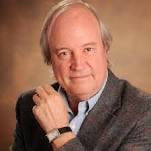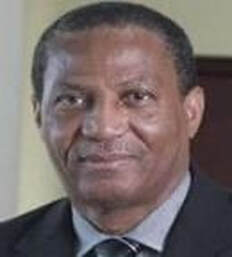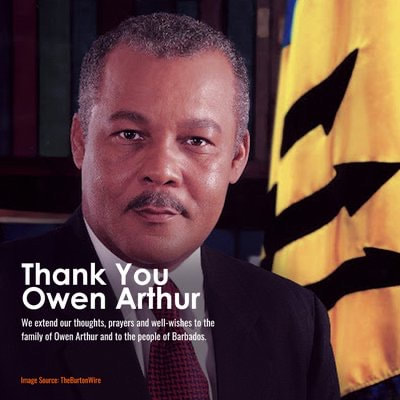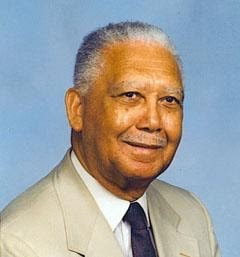|
The Blog this week is written by Prof Jorge Heine, former Chilean Ambassador to China. He is a research professor at the Paradee School of Global Studies, Boston University, a Wilson Center global fellow, and a non-resident senior research fellow at the Center for China and Globalization (CGC) in Beijing. This article was published in: Global Times 2020/5/26 to whom we are grateful. The recent resignation of World Trade Organization (WTO) Director-General Roberto Azevedo, effective in September, one year before the end of his second term in office, has thrown a monkey wrench into the world trading system. With the WTO already in serious trouble, this resignation could not have come at a worse moment.
World trade fell in 2019 for the first time since 2008, pulled down by both the US-China trade war and Brexit. According to the WTO, world trade might fall by as much as one-third in 2020, as a result of the COVID-19 pandemic. This is a perfect storm. The former president of the World Bank, Jim Yong Kim, stepped down from his post on February 1, 2019, three and a half years before the expiry of his term in 2022. Azevedo says he has nothing lined up, but quits to facilitate the process of electing his successor, whatever that may mean. Both Kim and Azevedo jumped ship at critical moments when a steady hand at the wheel was most needed. Member states wage yearlong campaigns to elect their candidates to head key international institutions, to occupy prestigious and handsomely paid positions. Once elected, why do such leaders quit ahead of time, leaving others to deal with the current mess in crucial areas in world affairs? This is just another symptom of something else: the falling apart of the current liberal international order (LIO) set up after World War II with pillars such as the United Nations (UN), the International Monetary Fund and the World Bank. It was also inspired by the principles of free trade, first championed by the General Agreement on Tariffs and Trade and later the WTO. Designed to avoid World War III, with lessons of the failed approach followed by the allied powers in Versailles in 1919, the LIO largely achieved this. On the premise that a rules-based international order is better than a free-for-all and utter Hobbesian system, in the past 70 years, the LIO has brought considerable prosperity to the world. It also avoided a global conflagration between the extant superpowers, such as the US and the Soviet Union — albeit at the cost of outsourcing direct conflicts to numerous proxy wars in Asia, Africa and Latin America. The current phase of globalization, started circa 1980, in turn, and contrary to what was then the conventional wisdom, ended up giving a big boost to emerging economies in the Global South. The so-called Asian Tigers first, followed by China and then by India, grew in leaps and bounds, attracting much worldwide manufacturing activity. Trade was very much at the heart of this, as global trade grew at twice the rate of the world economy from the mid-1990s till 2007. The ensuing rise of Asia and of the BRICS countries created a major imbalance in the power distribution and voting arrangements in international organizations (IOs) and international financial institutions (IFIs). Not too long ago, Belgium had more voting shares than China in the World Bank. To this day, shrinking middle powers like the United Kingdom are among the permanent members of the UN Security Council, whereas emerging giants like Brazil and India are not. Anachronistic structures that cease to perform their function need updating. But not only have these IOs and IFIs become outdated and unrepresentative. The WTO has two functions: To liberalize trade and to resolve trade disputes. On the first, the Doha Round, dedicated to foster a global reduction in tariffs, is stuck in neutral since 2008. On the second, its Appellate Body, tasked with resolving trade differences among members, has been rendered inoperative since December 1, 2019, when it was left with just one judge, lacking a quorum to take up new cases. This was the result of a long-standing blocking of such appointments by the US, going back as far as the Obama administration. Although the US has won a majority of the cases it has brought to the Appellate Body, it has also lost quite a number of trade disputes that others have brought against the US, which Washington deems unacceptable. A dozen-plus WTO member states have set up their own mechanism to resolve trade disputes. Several other states, mostly from the Asia-Pacific region, have come up with a statement in favor of free trade and in support of fostering, rather than hampering, the flow of goods and services across borders. Admirable as these initiatives may be, they don't measure up to the occasion, being the equivalent of rearranging the chairs on the deck of the Titanic. The international trading system is facing the abyss and the double whammy of a supply and a demand shock the likes the world has not seen since the Great Depression. Some years ago, the argument was posited that the key distinction was no longer between capitalist and socialist states, but rather between open and closed ones. It was said that only open economies and open societies could make the most of what is offered by the Fourth Industrial Revolution and the opportunities it offers on AI, robotics, cloud computing and the Internet of Things. Today, the irony is that the very countries that once championed free trade and the international arrangements that make free trade possible are closing up borders and raising obstacles to the free flow of goods and services. The last best champions of free trade can now be found in the Global South, rather than in an increasingly protectionist, isolationist and inward-looking North. Jorge Heine RELATED ARTICLES: · Brexit squabbles block the UK from an important role in the new world trade order · US trade executive says protectionism "damaging" to world trade
2 Comments
For this week's blog we have the pleasure of a YouTube Tribute to Sir Arthur Lewis by Professor Compton Bourne, former Governor of the Caribbean Development Bank (CDB), former Pro Vice Chancellor and Principal of the University of the West Indies (UWI), Trinidad and Tobago and former Chancellor of the University of Guyana (UG). One of the leading economists in the Caribbean , Professor Bourne has written extensively and has been influenced by Sir Arthur Lewis ' work and life. He helps us to remember Sir Arthur, who died in 1991: a St Lucian by birth and Caribbean stalwart with international acclaim. Professor Bourne's reflection celebrates the many facets of Sir Arthur's achievements: as Nobel Laurette in Economics; Vice Chancellor, UWI; Chancellor of the University of Guyana; Governor of the Caribbean Development Bank, Professorships at Manchester and Princeton Universities, advisor to governments and institutions worldwide; author, scholar, visionary, statesman, gentleman and friend. Especially at times like these, when the world over struggles to come to terms with the devastation of COVID-19 to lives and livelihoods, we miss the wisdom of Sir Arthur Lewis. We wish this father of development economics was around to provide the prescriptions for a revival through sound economic planning and the restoration of a viable international economic order. Let's listen to one of his disciples, Professor Bourne..... GOFAD is grateful to Sir George Alleyne for this week's blog which is being issued on World Nursing Day, May 12, 2020. Sir George is former Chancellor of University of West Indies, former UN Secretary General Special Envoy for HIV in the Caribbean and former Director of the Pan American Health Organization. GOFAD reviewed his most recent book The Grooming of a Chancellor, University of the West Indies Press, 2018 was reviewed by GOFAD on February 14, 2019. When Lord Nigel Crisp who is co-chair of the global movement “Nursing Now” asked me to write a comment for the international day of the nurse and midwife – May 12, I accepted with alacrity. This was not only because I had agreed a couple years ago to be one of the champions of Nursing Now and its three-year campaign (2018 to 2020) to raise the profile and status of nursing worldwide, but because of a long-held conviction that the critical role of nursing and nurses in our society was not promoted often and loudly enough. I am grateful to Professor Edward Greene for giving me the opportunity to include these comments in his GOFAD blog on this important day.
May 12, 2020 also has enhanced historical significance because it is the 200th anniversary of the birth of the legendary nurse Florence Nightingale. The theme for the celebration of this year’s international day is “Nursing the world to health”. In a sense this was prophetic, as it was chosen long before nurses and other health workers were thrown into increased prominence and yes, danger by the pandemic of Covid- 19. Three years ago, I was a co-author for a publication that analyzed the major problems for which the world should prepare – pandemic influenza, antimicrobial resistance, the noncommunicable diseases (NCDs) and of course climate change. It is pertinent to highlight the role or rather roles nurses must play in nursing the world through these challenges. It was not pandemic influenza – at least not yet – but Covid-19 that has shown into the sharpest possible relief one of the most critical roles of nurses that sometimes seems to be taken for granted in the discussions of the technical advances in the profession and the loud and proper cries for them to take leadership roles in for example primary health care and universal health coverage. In the middle of the pandemic and as there was no known effective treatment, it recalled the medicine of the pre-antibiotic era when successful outcomes of disease often turned around nothing more, nothing less than good empathetic and compassionate care. It brought back to me the end of Florence Nightingale’s nursing pledge of 1893 in which the nurse “pledged to devote myself to the welfare of those committed to my care”. I also recall the comment made by Prime Minister Boris Johnson about his stay in hospital and his deep gratitude to the nurses who stayed by his bed and cared him through the worst of his illness. When we laud and salute the nurses and healthcare workers as heroes of this pandemic for their courage in the face of personal danger, we also do so for the care they give to the sick in the face of uncertainty and unfortunately in the frequent assistance in helping to die with dignity. Of course nurses in their many other roles as educators, advocates, practitioners, leaders, policymakers, teachers etc. have multiple parts to play in nursing the world to some semblance of health through prevention and therapeutic initiatives in the other three areas of challenge. There are numerous data on the state of nursing globally and regionally and they all show the picture of a gendered workforce that constitutes almost 60% of the total health workforce and one that is projected to have a shortfall of some 6 million by the year 2030. There are many good plans and policies for helping countries to address this gap but the one that seems almost intractable is that of the migration of nurses from the less developed to the more developed countries and the often ignored fact that even in the developed world the majority of countries are both recipients and senders of their trained health workforce. Nursing holds a special place in the annals of Caribbean health. There is justifiable pride in the Jamaicans Cubah Cornwallis who treated a future King of England and the legendary Mary Seacole – a practitioner who saved the lives of many in the cholera epidemic of 1850-1851 and achieved international fame by using private funds to go and nurse the wounded in the Crimean war of 1853-1856 . And the 20th century saw Barbadians Nita Barrow and Ena Walters excel from the base of their training at the local Barbados General Hospital. The career of Nita Barrow is a storybook journey from the local nurse to the international civil servant to being President of a major International non-governmental Organization and finally being Governor General of her country. Ena Walters similarly rose to be Matron of her hospital for some 26 years, was a major educator and has the distinction of being the founding president of the Regional Nursing Body – a professional entity which is arguably the most successful and best organized of all the health professional organizations in the region. But these only a few of the many who have brought credit to their profession through the years, but they demonstrate that a good nursing training can be equipment for excellence in other fields. The local application of the theme for this year’s day must embrace at least three problems. First, there must be preservation of the health gains which have been made primarily through the devotion and caring of magnificent cadre of Caribbean public health nurses who have not occupied the spotlight and gained enough encomiums for their heroism. Theirs has been a meritorious constancy of community practice which is reflected in such data as the number of children who live and thrive past their first birthday. Second, nurses must be part of the advocacy that the region, while maintaining these gains, must now address the current pandemic and then ensure that the frequently used words “never again” refer to the resolve to establish the framework to deal with future epi and pandemic threats. Nurses must also be actively involved in addressing the epidemic of NCDs which do not evoke the public hysteria caused by the diseases of contagion but are equally destructive to life and living of our people. So, on this International Day, I offer my sincere congratulations to all nurses and midwives and thank them especially for that care which is so central to their ethos and ethics. Finally, let me admit the bias that comes from the fact that my wife is a proud graduate of the school of nursing of the University Hospital of the West Indies. George Alleyne May 12, 2020 This week’s Blog is being released just ahead of Mother’s Day. We therefore extend our deep appreciation and love to all mothers for their care and nurturing and for being on the frontline of our lives. We hope that the constraints of COVID 19 will provide opportunities for creative celebrations that would be no less memorable for them on their Special Day.
We have however chosen to dedicate this Blog to Eric Leopold Edwards who died at the age of 95 on April 25, 2020 at his home in Silver Spring, Maryland , USA. He was born in Jamaica and arrived in Washington, D.C. in September 1948 to study at Howard University. The trail he blazed during his more than 70 years of scholarship and advocacy played a key role in winning recognition and respect for the Jamaican and Caribbean communities in the USA and in particular, in the Washington D.C., Virginia, Maryland and the Baltimore metropolitan area. Leo was a font of knowledge. He may have been described as an historical revisionist which is an important, and integral part in seeking to learn the truth, or gain a different perspective on historical events. This orientation was crucial for Leo in presenting an objective, academic, and truth based narrative on historical events which ranged from the breakup of the West Indies Federation, the role of CARICOM, Pan Africanism, reparations, diversity in the USA and globalization. It provided a unique formula for interpreting the role of leadership, especially in the context of a changing world order. It made him highly respected by Caribbean leaders and ambassadors in the USA. And as former Jamaican Ambassador to the USA Richard Bernal recalled in an interview with Vaughan Martin on Caribbeana, on Saturday May 2, an engagement with Leo Edwards was an essential orientation for the Caribbean Ambassadors to the USA. But his recognition was also international. Nelson Mandela paid his first official visit to the USA in June 1990 after 27 years in prison and before he assumed the Presidency of South Africa. His audience with President Bush and Secretary of State, James Baker was convened despite the fact that Mandela would remain on the Watch List until 2008 when President George W. Bush signed legislation formally lifting restrictions on Mandela and the ANC that had been in place since the mid 1980s. During that visit which included Mandela being hosted at a breakfast session of the Congressional Black Caucus, he requested a meeting with Leo who as President of Trans Africa DC was in the forefront of the struggle to dismantle the Apartheid regime, free Mandela and to remove his name from the Watch list. Among his notable contributions include: founding Patron of the Washington-based Caribbean American Political Action Committee (C-PAC), founding President of the Council of Caribbean Organizations, Inc.; a founding Member and Secretary of the Jamaica Nationals Development Foundation; and Chairman of TransAfrica D.C. Metropolitan Chapter’s Board of Directors. Specially Honouring Carmen Edwards GOFAD joins the multitude of those, whose lives Leo touched, in remembering his enormous legacy. Most of all we extend our condolences and affection to Carmen, his wife, lifelong partner and collaborator at this time of her profound loss and grief. We wish her a Happy Mother’s Day. It is our hope that she and the rest of the family will be comforted by the many glowing tributes to Leo and in remembering the good times they shared during his long and illustrious life. Readers may wish to share their memories of Leo and sympathy with Carmen. In Leo’s honour, we feature two (2) of the many tributes that have already been disseminated. We have also attached a YouTube interview given by Leo on Caribbean Nation TV which fully illustrates the measure of the man. Two Tributes as a Pivot The tribute below paid by Her Excellency Audrey Marks, Jamaican Ambassador to the USA and Permanent Representative to the OAS truly represents his towering contribution and profound impact: "The late Mr. Edwards leaves a legacy that includes his service as an early president of the Caribbean Students Association at Howard University, from 1949 to 1955 and later in the Caribbean-American Intercultural Organization (CAIO) and the National Coalition on Caribbean Affairs (NCOCA).This has to be a truly difficult a time, especially in the present circumstances restricting us from being able to pay respects in person. Nevertheless, I join with numerous Jamaicans, Caribbean people, and countless others whose lives the great E. Leopold Edwards touched in immeasurable ways, trying to help bear the burden of the loss in this moment of utmost grief.” See article DIASPORA | Eric Leopold Edwards, 'Jamaican elder statesman' dies in Washington at age 95 https://www.wiredja.com/index.php/news/diaspora/diaspora-eric-leopold-edwards-jamaican-elder-statesman-dies-in-washington-at-age-95 Another tribute by Gabriel J. Christian, Esq.Member, Maryland Governor's Commission on Caribbean Affairs 2007-2014, elaborates on Leo’s role as a Leader for Caribbean Diaspora Progress "History notes that Leo Edwards came to Washington to attend Howard University in the late 1940s. From his student days, he was a stalwart Caribbean nationalist when our British West Indian islands were still colonies. To that end, Leo was an advocate of the independence of the British West Indian colonies, within the construct of the West Indies Federation. Unfortunately, the federation did not last; commenced in 1957 it dissolved in 1962 when Jamaica opted to become independent on its own. Leo Edwards was born of a generation that saw academic excellence and community service as the norm for those who made up the Caribbean Diaspora in the United States. He excelled on both the academic and community service fronts. He was a firm spokesperson for the uplift of our Caribbean community. Mr. Edwards sought to advance the cause of Jamaica's development, as well as that of the Caribbean and Africa. To those ends, he worked tirelessly all his adult life. In his last years, he struggled out of his home, alongside his beloved wife Carmen Edwards to attend community events. Such was the case last year when I last saw him. Then he was attending the book launch of the memoir of Jamaica's former Prime Minister P.J. Patterson at the Organization of American States Hall of Nations. As usual, he was friendly, jovial, and engaged. Finally, Leo Edwards was a friend of mine from my days at college in the 1980s, when he freely gave of his advice. Those of us who were fortunate to have known him appreciated the wisdom shared. Though he is gone, the beneficial legacy of Leo Edwards' service to the best needs of our community will not be forgotten. We shall remember him." Giving thanks for the Inspirational Wisdom While these two tributes would have provided a broad spectrum of Leo’s attributes, GOFAD extends appreciation to Carib Nations operating out of the University of the District of Columbia, Washington DC for the opportunity to listen to the inspirational wisdom from the man himself. It allows us to remember him as we was. https://youtu.be/42EqTepq9gg May he Rest In Peace Eddie Greene |
Details
AuthorEdward and Auriol Greene Directors, GOFAD. Archives
April 2022
Categories |
Global Frontier Site Links |
Contact InformationEmail: [email protected]
Twitter: @GofadGlobal |





 RSS Feed
RSS Feed
